Online Social Media Platforms are a Knowing Facilitator of Wildlife Trafficking

By Dr Dan Stiles
In Volume 30 of PATROL, we featured a video interview with Dr. Dan Stiles about the issue of wildlife trafficking through social media. He wrote this piece to expand on the video's content.
On an overcast day in the tropical forest of the eastern Democratic Republic of the Congo (DRC), a bushmeat poaching gang attacked a band of feeding chimpanzees and gunned down five adults as the others rushed for cover.
Two of the killed were mothers with infants clinging to their breasts. The terrified babies, a few months old, were thrown into confusion by the shrieks from the adults, the panicked scampering and deafening explosions from the shotguns.
One infant had been hit in the forehead by shotgun pellets.
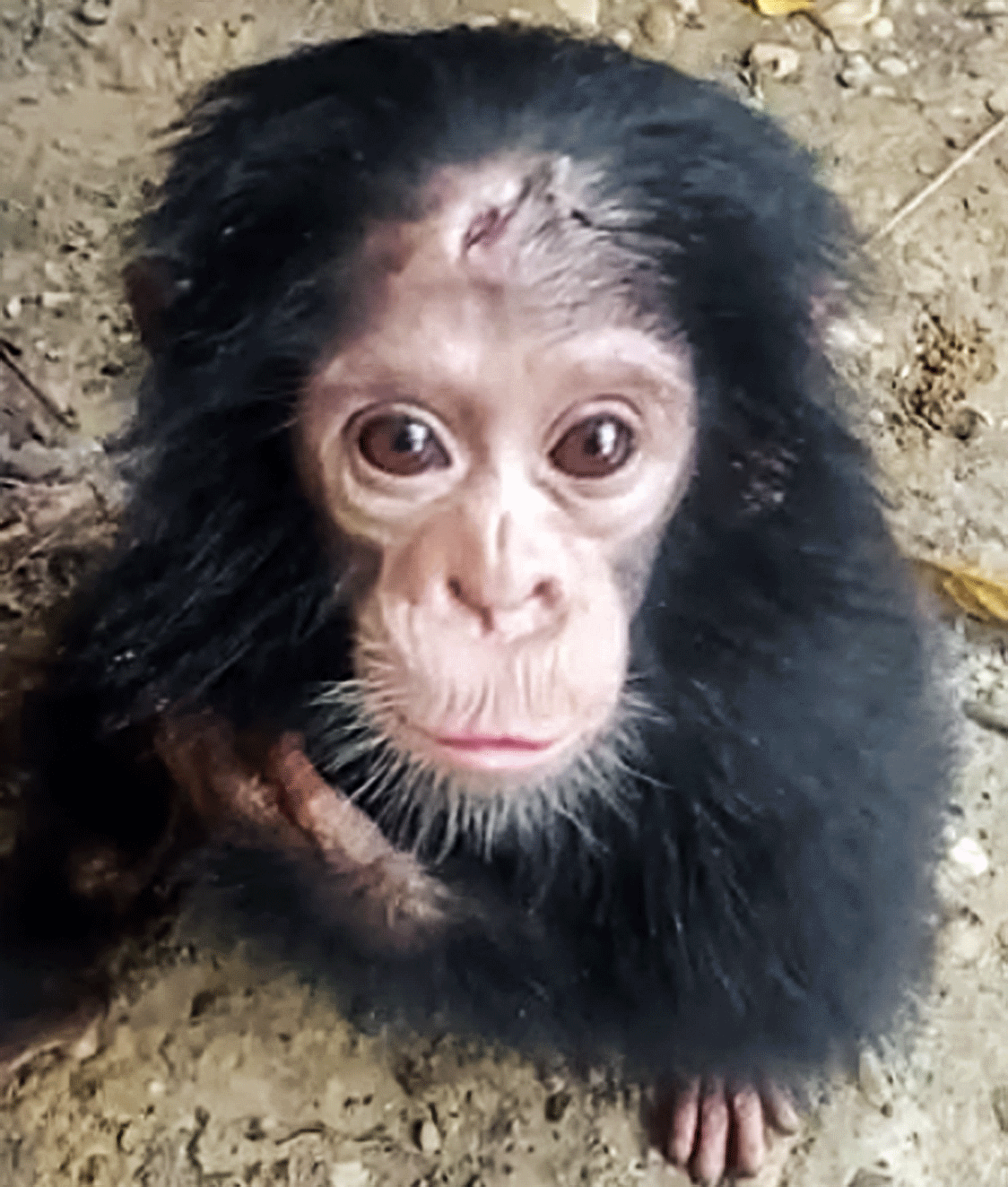
Rough hands ripped the infants from the limp, maternal arms and threw the two little ones into a smelly burlap sack, sparing them the sight of their mothers being dismembered by pangas and their bleeding body parts stuffed into similar sacks, destined for the Kisangani bushmeat market.
In Kisangani, the poachers sold the infant chimps for the equivalent of USD 100 each to brokers who dealt mainly with African grey parrots and other desired birds. They also knew dealers in Kinshasa, DRC’s capital, who were interested in great apes.
Two days later, the two infants flew with a load of greys to Kinshasa from Kisangani, where the broker’s agent sold them for USD 800 each to a professional wildlife trafficker who supplied wildlife dealers in the Middle East, South Asia, and the Far East who were involved in the exotic pet and private zoo industries.
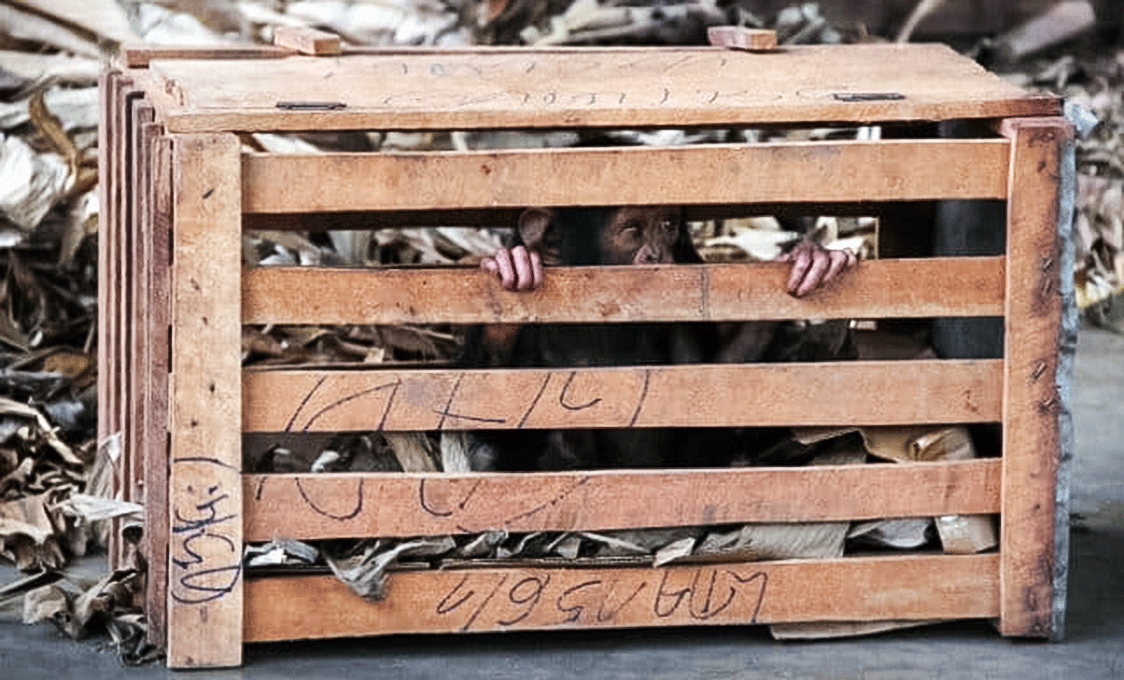
The Kinshasa trafficker made a video of the two chimps with a dated sign and sent it by WhatsApp to potential buyers in the Middle East and Asia.
Anyone interested would respond. Several did, and the trafficker sold the chimps to a dealer in Dubai for USD 34,000 plus shipping—Dubai paid top dollar. The dealer split them up and advertised them on social media, receiving USD 50,000 for the unblemished one but only USD 32,000 for the one with the forehead scar.
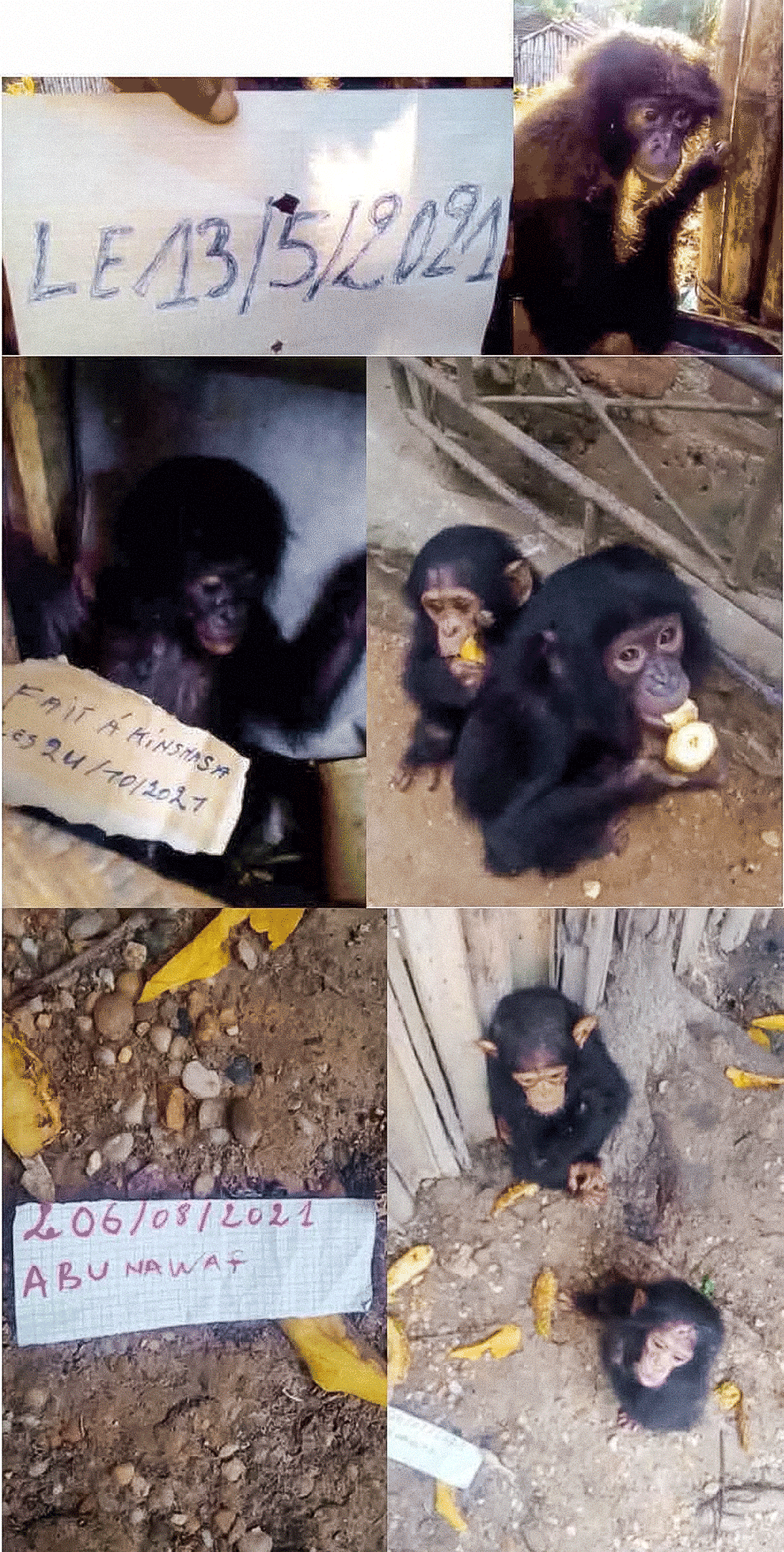
For traffickers engaging in some of the world’s biggest black-market trades, Meta Inc. is the facilitator of choice. The company serves as a vehicle for thousands of traffickers who sell illegal goods using Facebook, WhatsApp, and Instagram to market their goods, connect with and negotiate sales with buyers, and even receive payments.
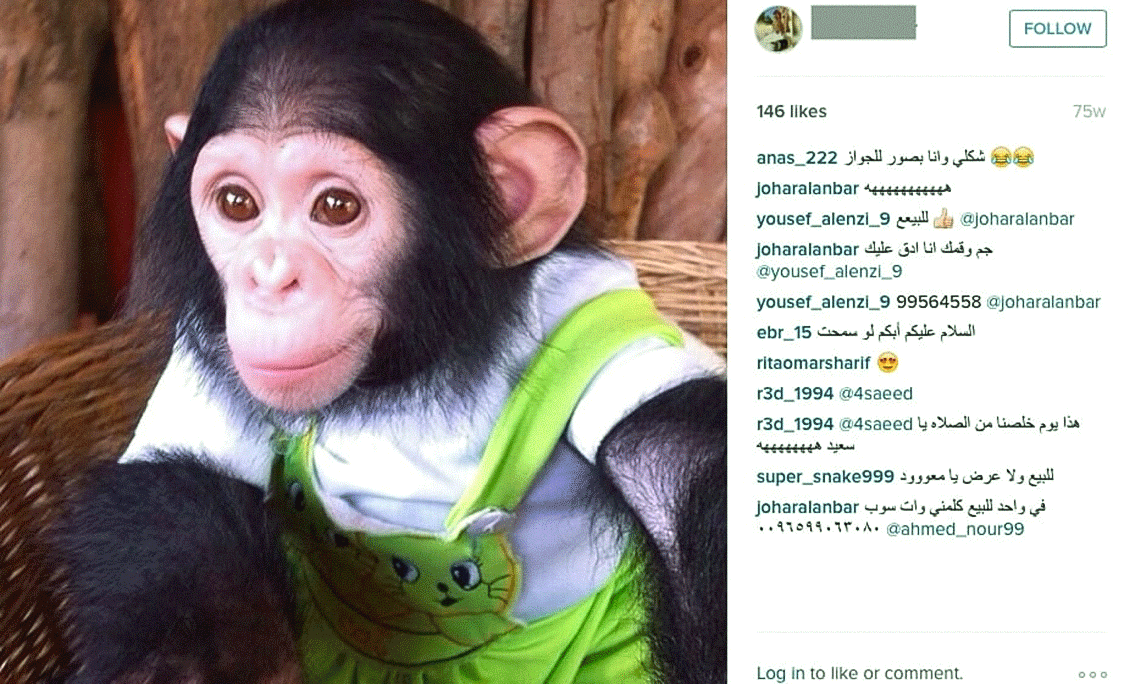
More than two decades ago, the U.S. Congress passed the Communications Decency Act (CDA), which included Section 230. The law was meant to mitigate the risk for firms hosting third-party content on Internet platforms.
Technology firms were supposed to self-police content on their platforms as they saw fit. The law provided those platforms with sweeping immunity from liability for content posted by third parties.
Tech firms broadly — and Meta in particular — failed to hold up their end of the bargain to self-police. Huge cyberspace marketplaces exist where buyers and sellers trade illegal products ranging from drugs, wildlife, antiquities, and human remains to human beings themselves. Meta platforms provide environments for transnational criminals to connect, advertise, and move material.
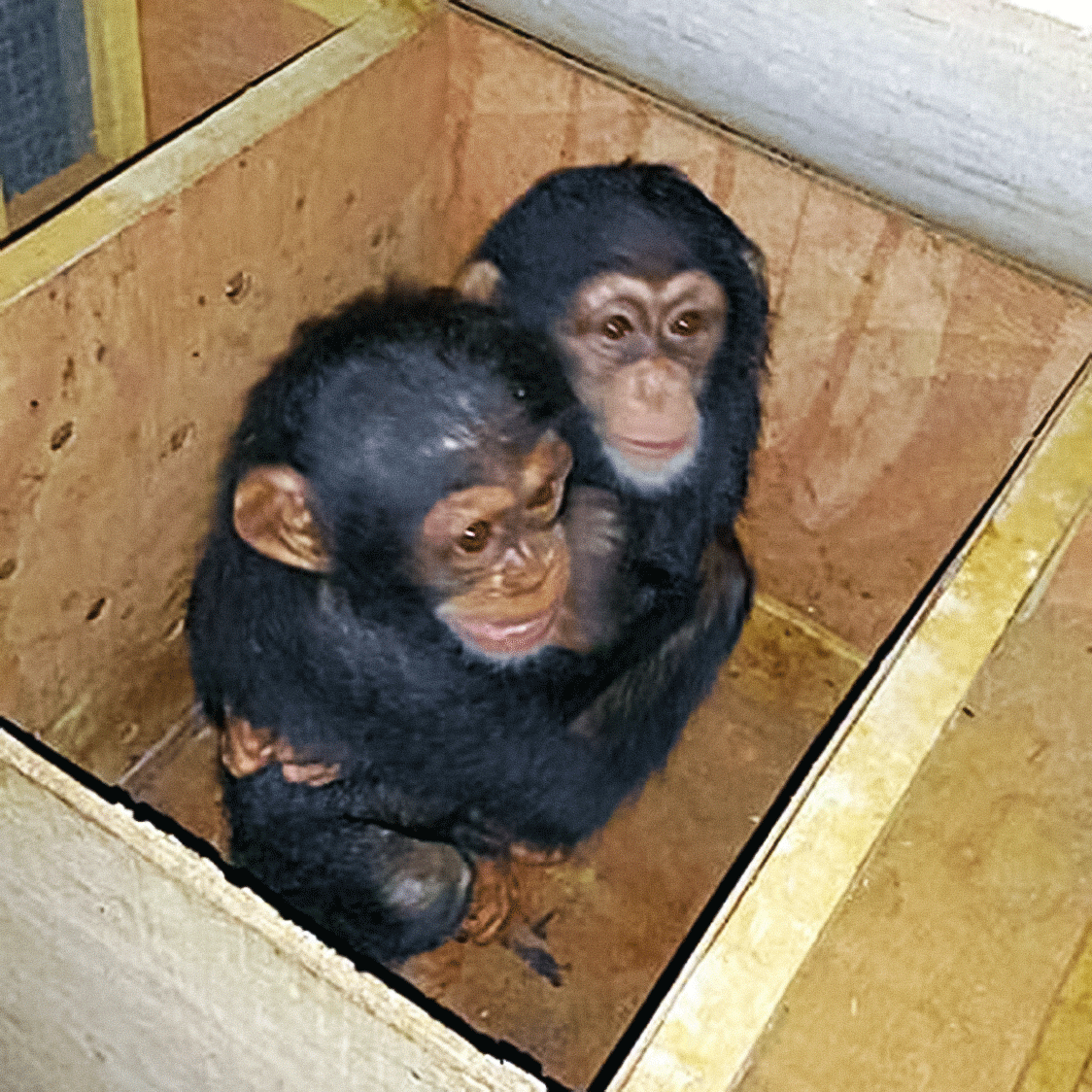
Facebook has a set of policies banning illegal activity, laid out in its Terms of Service and Community Standards. But these are only as effective as their enforcement, and the company’s content moderation leaves much to be desired.
Meta and other social media firms mainly rely on algorithms and artificial intelligence to moderate harmful content. But investigations by the Alliance to Counter Crime Online (ACCO), where I am a contributing member, show time and again how these algorithms actually connect traffickers faster than moderators can remove their accounts.
They suggest friends and recommend groups, putting illicit actors in touch with one another, continually expanding networks of users engaging in similar illegal activities.
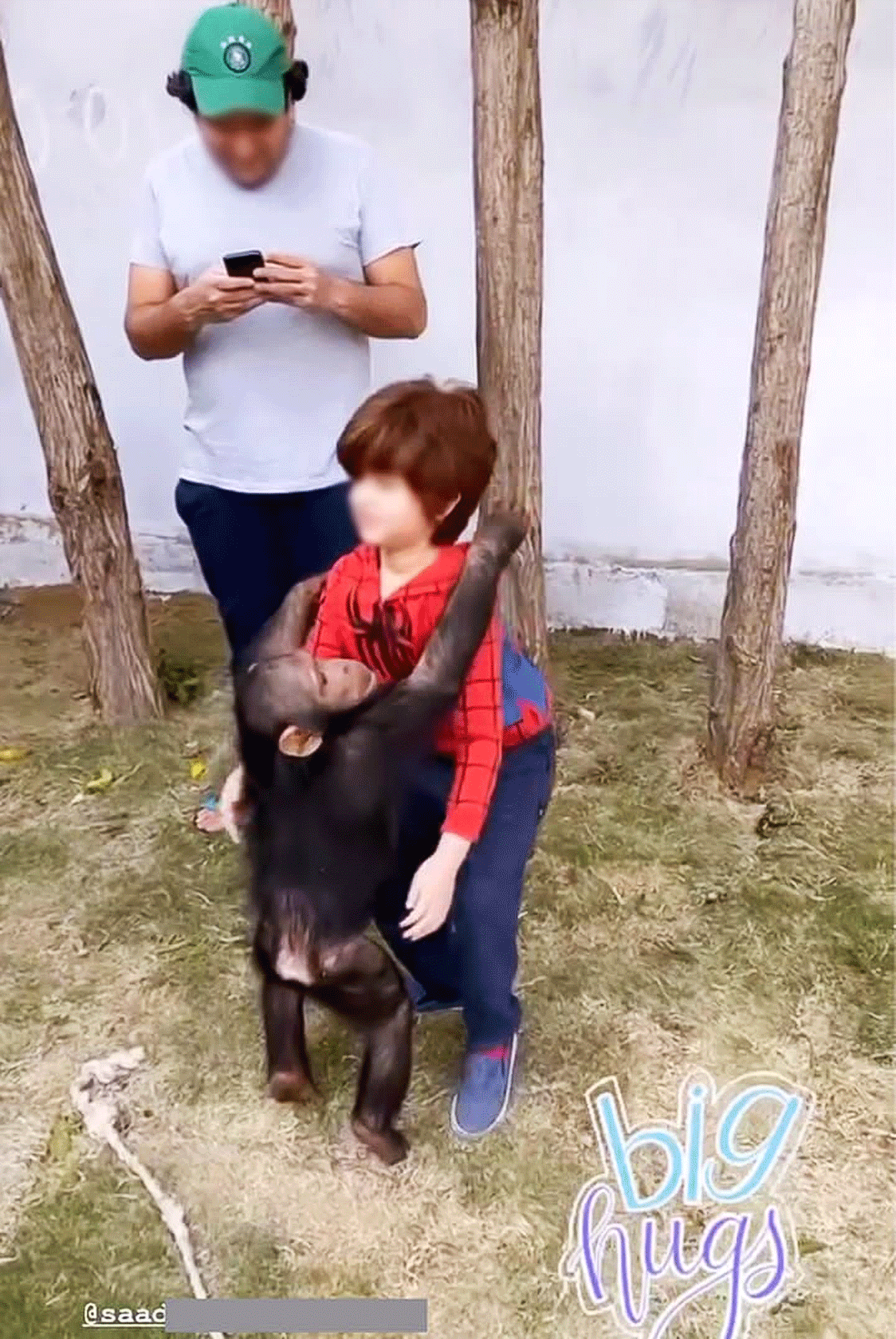
In response to increasing pressure from wildlife organizations, Facebook and Instagram banned the sale of all animals in 2017. But a cursory search on either platform will turn up countless groups and individuals still advertising domestic and exotic pets, even zoo animals, for sale.
Ivory and rhino horn are sold, using code words, in closed groups. The same is true on other online platforms such as Alibaba, Taobao (owned by Alibaba), Google, TikTok, and more. Along with Facebook and Instagram, these platforms are all founding members of the Global Coalition to End Wildlife Trafficking Online.
Launched in May 2018, the coalition’s stated goal was to reduce online wildlife trafficking by 80 percent by 2020. The technology companies involved in the Coalition are still very far from achieving that goal in 2024.
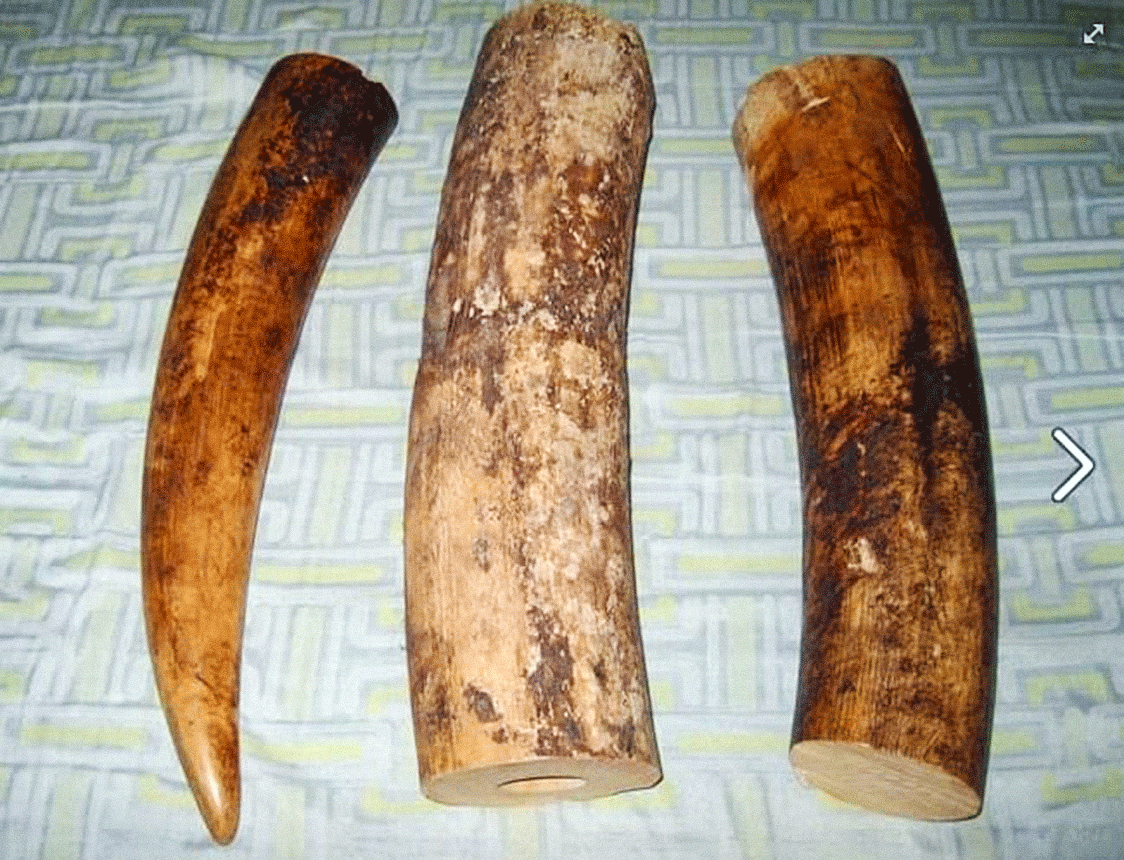
Because of Section 230, the companies based in the U.S. cannot be prosecuted for third-party posts, but individuals selling illegal commodities online can be prosecuted.
However, there are not yet any legal pathways in the U.S. that formalize and regulate cooperation between online service providers and law enforcement, mainly due to privacy policies and regulations.
The crux of the problem in getting effective cooperation from the titans of Silicon Valley to push illegal and dangerous activities offline is the uncomfortable fact that such cooperation conflicts with their business model.
The online service providers make their money from user engagement and ‘clicks,’ whether it be to purchase a commodity, to read an advertisement, or, in the case of online black markets, do business with a trafficker. Any actions that service providers take to reduce user engagement reduces their bottom line.

It’s up to governments to enact legislation that compels social media firms to modify their algorithms to detect illegal activity instead of facilitating it. Meta, Google, and other technology firms are sophisticated and rake in billions in annual revenue.
They’re more than capable of combating the crime on their platforms, but there’s nothing in the law that requires them to do so. That needs to change. The U.S. Congress has started the discussion.
Other countries where online platforms are based that engage in illegal wildlife trade, particularly China, need to step up their enforcement actions as well.
Legislatures will have to achieve the admittedly difficult task of assigning responsibility to online service providers to decide how to balance free speech, legitimate commerce, and user privacy against dangerous communications, illegal trade, and reporting user abuse to the appropriate national and international authorities.
The current service provider response of simply removing posts or closing accounts does not solve the problem.

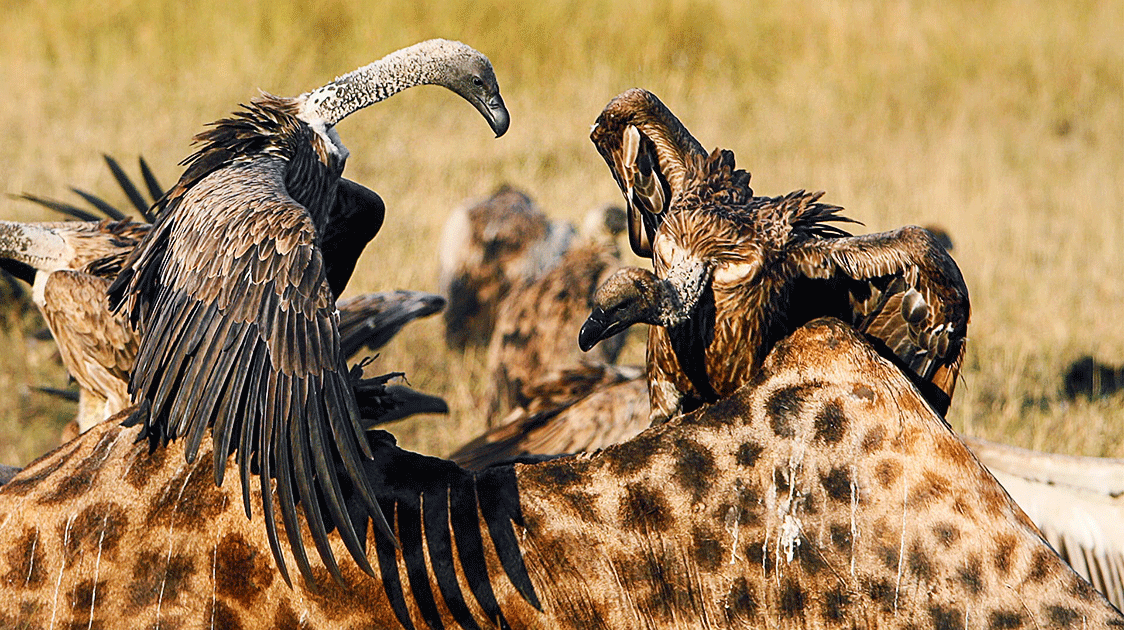
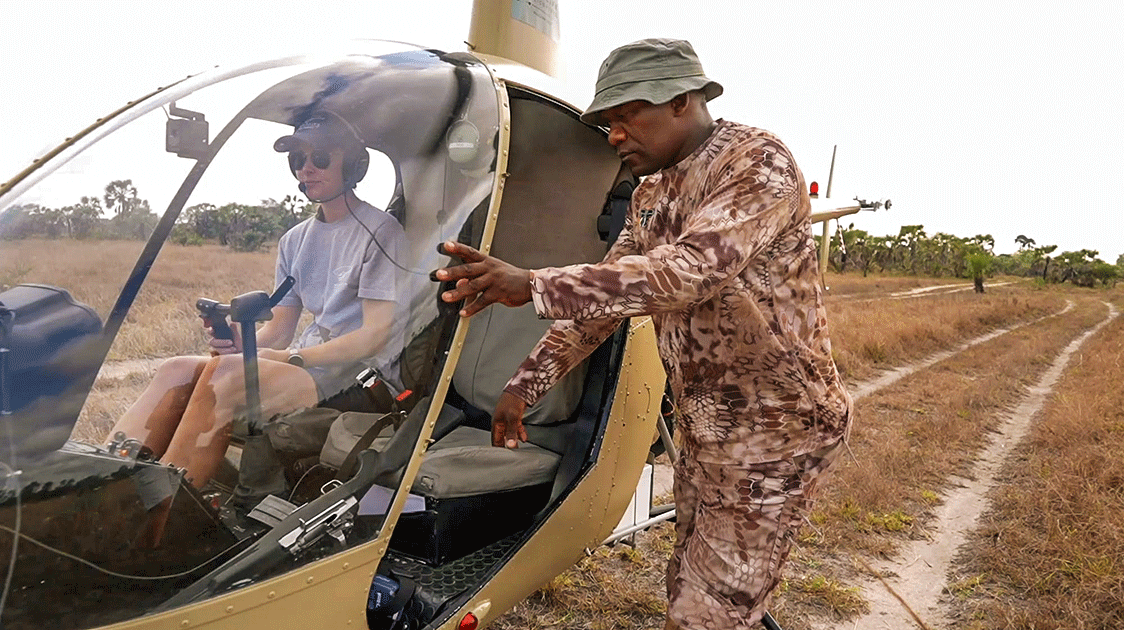
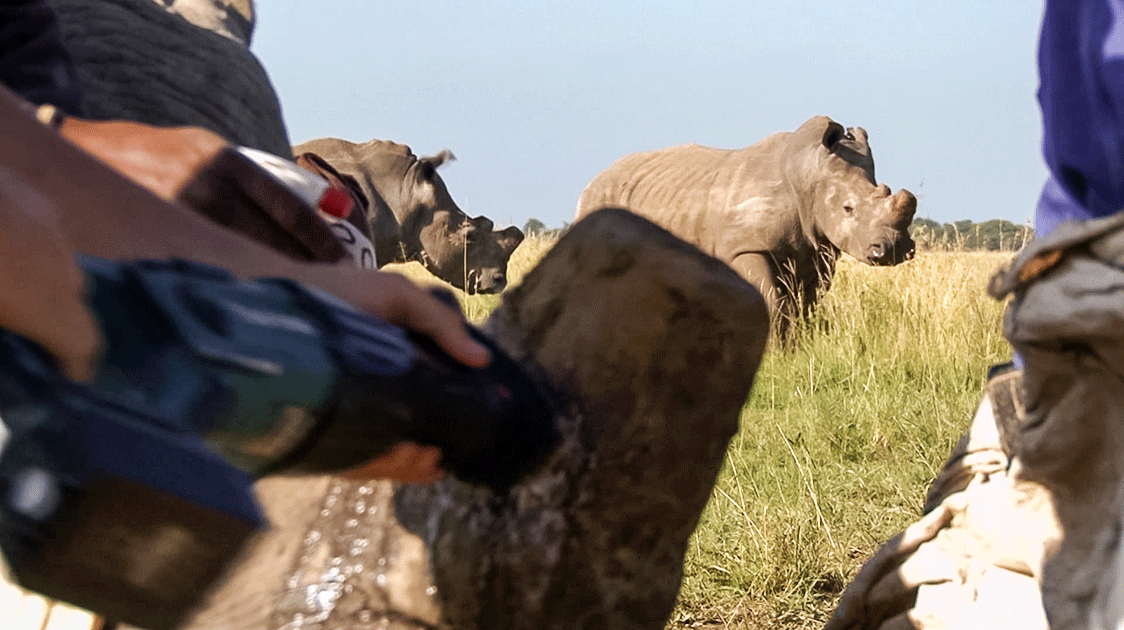
Comments ()